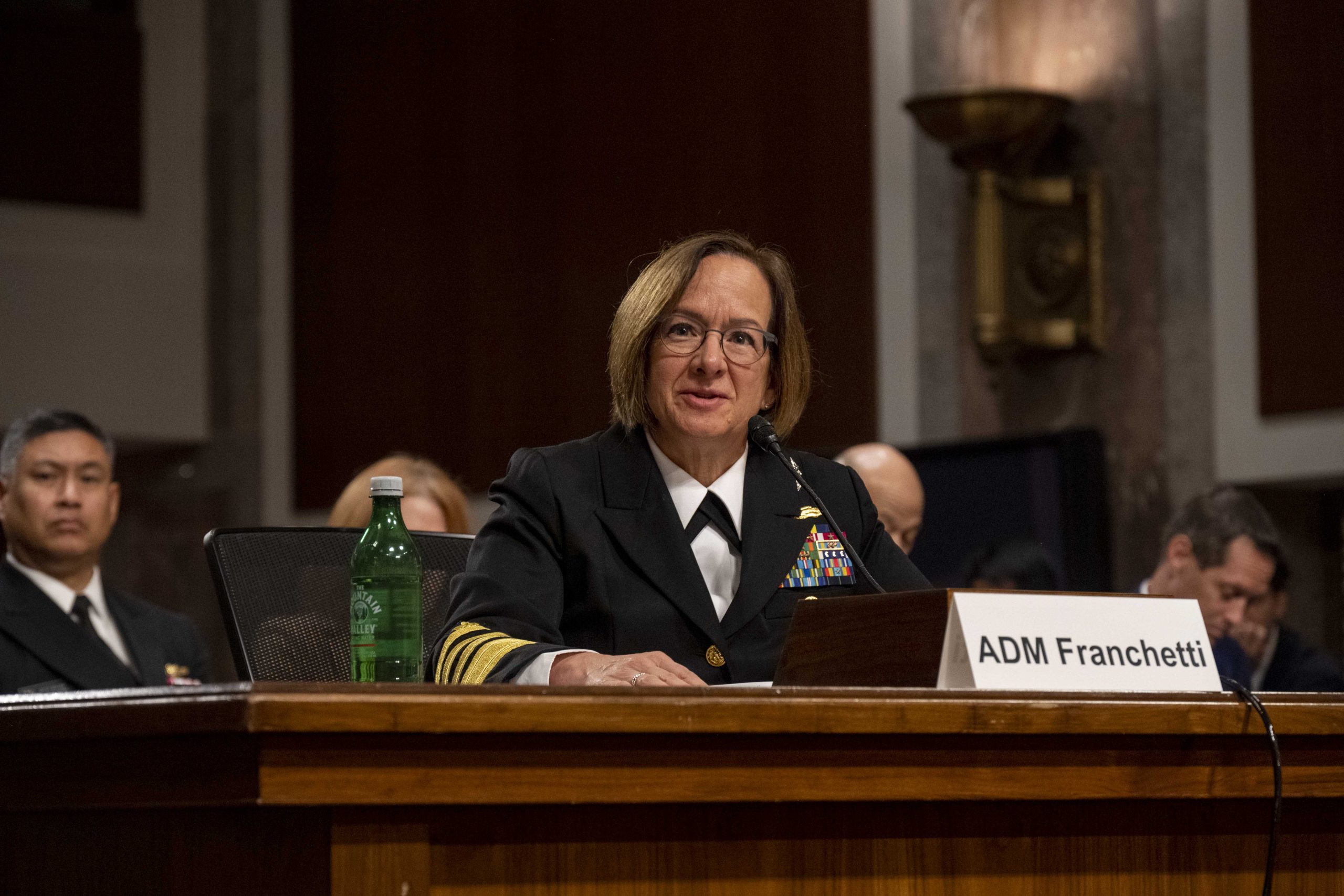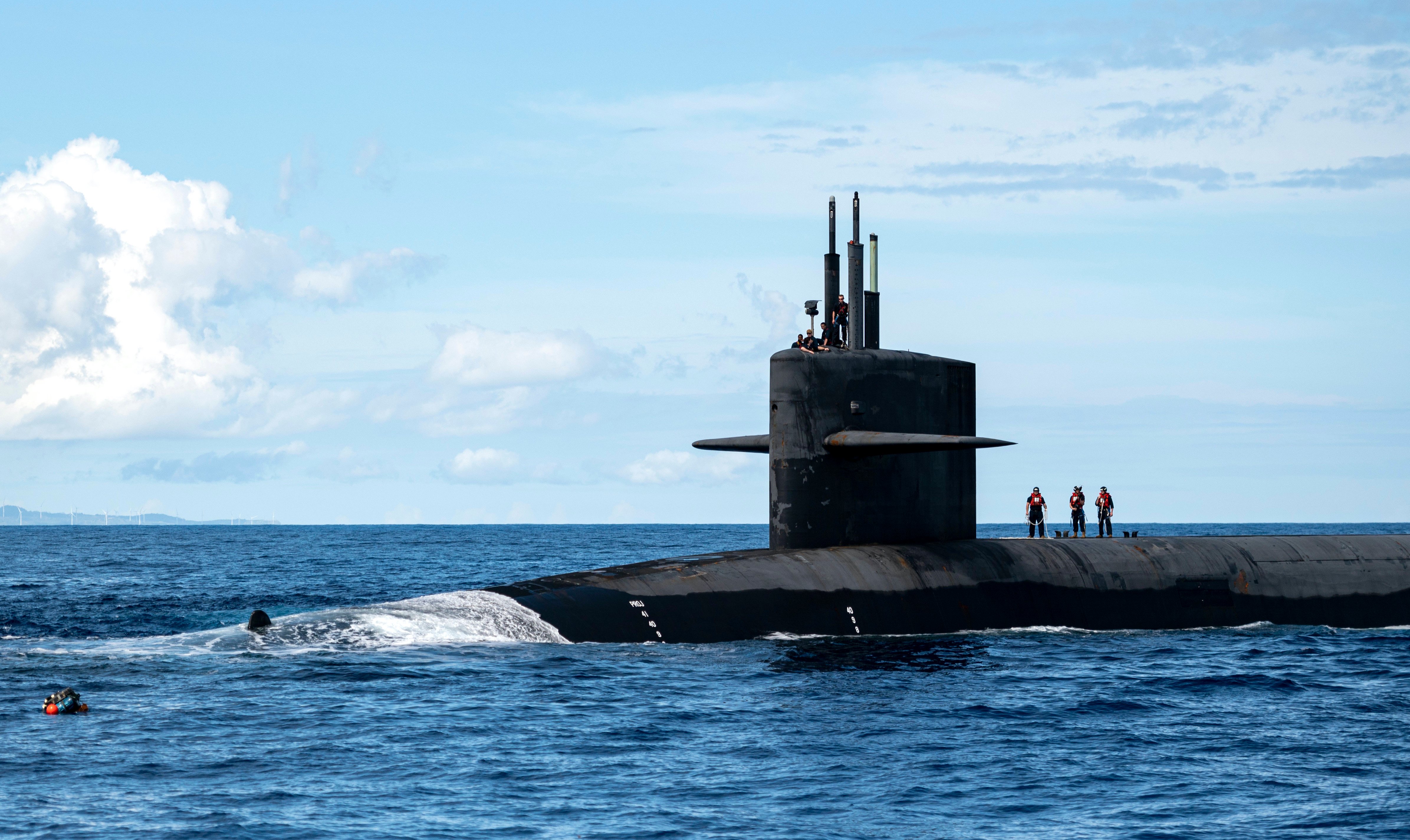
The program to replace the Navy’s sea-based leg of the nuclear triad is on track for its new schedule, the nominee to lead the sea service told Congress on Thursday.
The Columbia-class ballistic missile submarine program is no longer working toward its original accelerated schedule, Adm. Lisa Franchetti told the Senate Armed Services Committee during her confirmation hearing to be chief of naval operations.
“Columbia started out on an accelerated schedule. We are no longer on the accelerated schedule, but we are meeting the contracted delivery schedule for Columbia,” Franchetti told lawmakers.
“We are continuing to work closely with industry against all those challenges that I described earlier and continuing to provide the right level of oversight so we understand where we are. It is [an] all hands on deck effort to ensure that we stay on time.”
Navy officials have previously said they could extend the service lives of five Ohio-class submarines as a hedge should the Columbia program fall behind, a plan Franchetti pointed to during her testimony Thursday.
“Separately, we have developed a mitigation strategy to extend some of our Ohio-class submarines in the event that Columbia does not deliver on time. But I am fully committed, if confirmed, to ensuring Columbia delivers on time,” she said.

Franchetti said it’s “absolutely critical” for lawmakers to approve an anomaly for Columbia under a potential continuing resolution so the Navy can start building the second Columbia-class boat. Under CRs, the Pentagon cannot spend money on new programs and the funding levels are restricting to the previous year’s budget levels.
“We have 9 ships in the budget request and we won’t be able to start on four of them under a CR. So Columbia is one of them. And we essentially need an anomaly to be able to not get behind on our commitment to deliver on this strategic deterrent for our nation,” Franchetti told Sen. Deb Fischer (R-Neb.).
Earlier this year, Navy Secretary Carlos Del Toro told Congress that the Columbia program was 10 percent behind schedule, but service officials later told USNI News that the secretary’s remarks reflected General Dynamics Electric Boat’s internal 74-month timeline to build the first boat, rather than the Navy’s contracted 80-month schedule.
Franchetti, who is currently the vice chief of naval operations but is also performing the duties of the chief of naval operations, was testifying before the committee Thursday as part of her confirmation process to become the Navy’s next chief of naval operations.
During an exchange with Sen. Elizabeth Warren (D-Mass.), Franchetti noted the current challenges the Navy faces due to an ongoing hold on confirmation of more than 300 flag and general officer nominations.
“As we look right now as our Navy is facing challengers all around the global – threats from our adversaries – we want to have the right people with the right level of experience in those positions. And as we continue to not have the confirmed people that we’ve nominated with that experience, we are going to continue to see an erosion of readiness.”
Sen. Tommy Tuberville (R-Ala.) since February has put a hold on unanimous consent for military confirmations due to a Defense Department policy that allows service members to travel out of state for abortion services and receive reimbursements. The Alabama senator argues the policy violates the Hyde Amendment, which prohibits federal dollars from going toward abortion services.
During the hearing, Warren noted that the 300-plus officer holds affect service members down the chain of command and asked Franchetti how long it will take for the Navy’s promotion process to recuperate from the ongoing hold.
“I think just at the three-star level, it would take about three to four months to move all of the people around, but it will take years to recover from the promotion – if confirmed – for the promotion delays that we would see forward,” Franchetti said.





